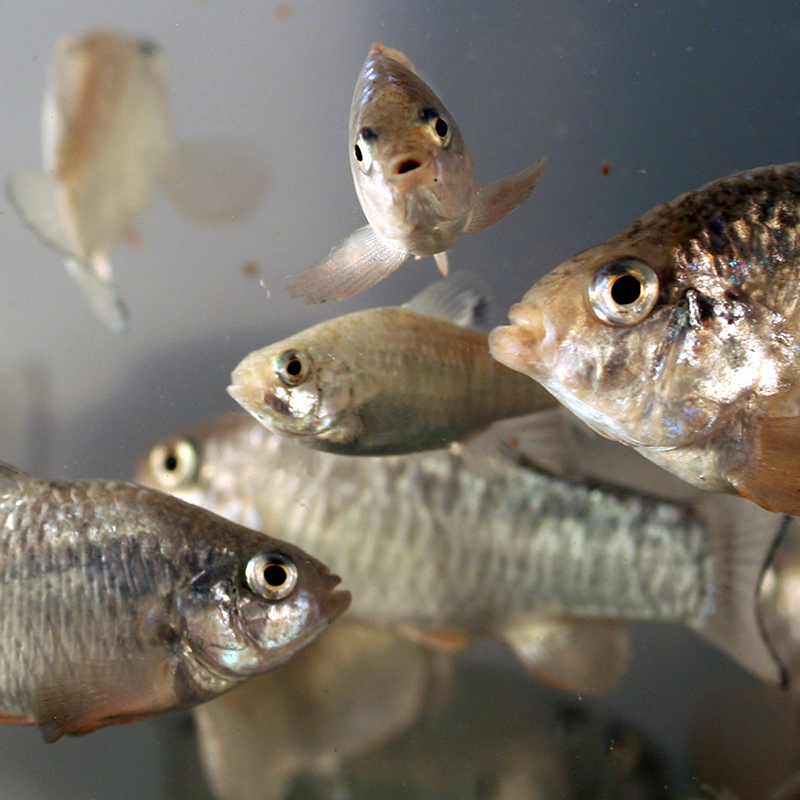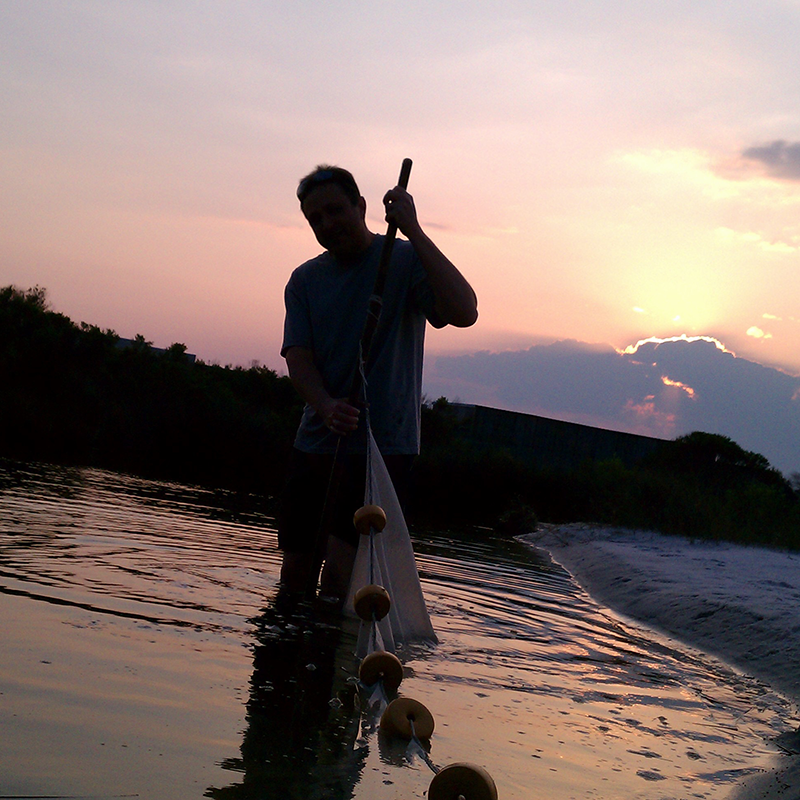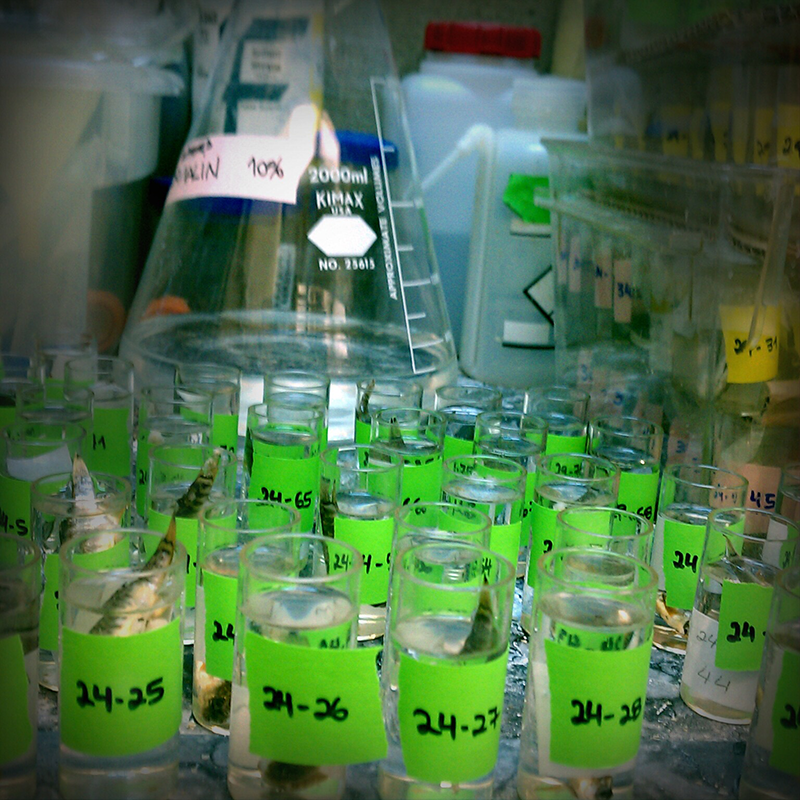about our research
-

lots of fish
-

some field work
-

and some lab work
We study the various ways in which populations cope with changes in the environment. Most organisms have to cope with constant fluctuations in, e.g., temperature at various time scales (daily, seasonally, annually). An important mechanism that facilitates coping with these changes is phenotypic plasticity, the potential for an organism to produce different characteristics under different environments. Further, in some species, parents can predict the environment their offspring will experience and get them ready for it — a biological head start of sorts. This is known as transgenerational plasticity (or cross-generational plasticity/transgenerational acclimation/maternal environmental effects) and is also part of our research focus. We study how within- and across-generation plasticities work and how they interact with local adaptation in an ecological context. We work primarily on fishes, mostly because we know how to keep them alive and happy.